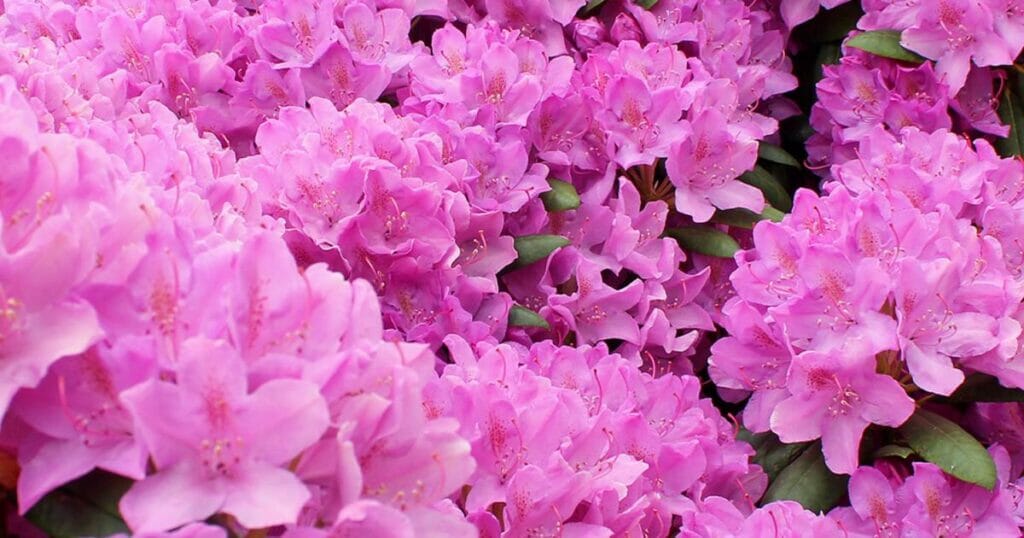Rhododendrons are one of nature’s most versatile specimens. They fit beautifully into a variety of landscapes. They are part of the Ericaceae family, which also includes heathers and blueberries. There are over 1,000 species of this ornamental plant, varying in sizes and colours, from white to pink, red, and purple.
Apart from being garden favorites, rhododendron plants have a notable trait: they can grow well in acidic soil conditions because of their shallow root systems. This explains why they work well with organic materials like compost, pine bark, or other acidic substrates.
Be cautious, though. These visually appealing plants contain grayanotoxin, a compound toxic to both humans and pets if ingested. Even honey made from rhododendron nectar (known as “mad honey”) can induce hallucinations and other medical symptoms.
If you’re a gardener tending these plants, wear gloves and avoid inhaling the plant debris. An allergic reaction, known as “rhododendron dermatitis,” may happen due to skin exposure.
To help rhododendrons thrive, keep an eye on the pH of your soil. They most prefer a slightly acidic soil pH of 4.5 to 6.0. Regularly water them, especially during dry spells, but ensure no waterlogging as rhododendrons are prone to root rot.
The term ‘posiones chippings’ seems unclear. If you’re referring to using wood chips or chippings as mulch for rhododendrons, here are a few points:
Mulching with wood chippings can be beneficial if done right. The chips can help conserve soil moisture, suppress weeds, and moderate soil temperature. However, be cautious about the type of wood chips you use. Some types of chippings, especially those from treated or painted wood, can contain harmful chemicals.
Many gardeners choose pine bark chips to mulch their rhododendrons as it also helps acidify the soil. Regardless, always monitor the health of your plants when applying any new mulch to ensure it’s beneficial and not causing harm.
Bear in mind that the type of wood chippings and its decomposition rate can alter the soil pH. Hence, regular soil testing is also advised to maintain optimal conditions for your rhododendrons.
As always, remember to take suitable precautions while handling any plant material to ensure the safety of you, your family, and any pets.

